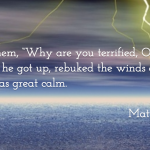 Last night, Greg and I had the pleasure of hearing a talk by Chesley B. “Sully” Sullenberger, III, better known as Captain Sully Sullenberger. We’re in Las Vegas at a medical conference and Captain Sullenberger was the keynote speaker for a gathering of physician leaders from around the country. Prior to his introduction, we viewed a clip of that fateful few moments where Captain Sully’s plane struck birds, communicated its distress to the tower, and ultimately crash landed in the Hudson River. If you need a refresher of the events of that cold January 2009 day, check out Highest Duty: My Search for What Really Matters written by Sullenberger in 2009. Here’s a video of Captain Sullenberger recounting the moments of that day to Katie Couric:
Last night, Greg and I had the pleasure of hearing a talk by Chesley B. “Sully” Sullenberger, III, better known as Captain Sully Sullenberger. We’re in Las Vegas at a medical conference and Captain Sullenberger was the keynote speaker for a gathering of physician leaders from around the country. Prior to his introduction, we viewed a clip of that fateful few moments where Captain Sully’s plane struck birds, communicated its distress to the tower, and ultimately crash landed in the Hudson River. If you need a refresher of the events of that cold January 2009 day, check out Highest Duty: My Search for What Really Matters written by Sullenberger in 2009. Here’s a video of Captain Sullenberger recounting the moments of that day to Katie Couric:
Since I typically hear talks like this one at Catholic conferences, perhaps I tend to listen to a speaker with a particularly religious (and yes even Catholic) frame of reference. I can’t help myself.
So last night’s talk has left me pondering a few things. First off, let me compliment Captain Sullenberger’s courage, efficiency, and also his amazing skills as a public speaker. His audience was rapt with attention – he was generous with his time in answering questions and phenomenal at providing the gathered physicians with relevant “teachable moments” for the work they do in healthcare. I wish that I’d had my computer with me to take notes, but since I didn’t, I’ll simply share with you the few takeaways I had from the talk.

1. Captain Sullenberger stressed the fact that his lifetime of preparation equipped him to handle his duties on that fateful day when he saved so many lives. His words reminded me that every moment of our vocations is an intentional building block, even those tough ones that we’d wish away.
2. Captain Sullenberger gave credit generously to his crew. It wasn’t just pandering — he definitely saw the landing, evacuation and rescue in the river as a team effort. We’d do well to remember those that help us achieve our accomplishments as well, and to remind ourselves to focus at least as much on their input as we do on tooting our own horns.
3. Captain Sullenberger in no way mentioned faith. This was perhaps the most striking aspect of his talk for me. Again, remember that we were at a medical conference and that he was in no way there to discuss spirituality. I think the fact that this struck me sound clearly is largely due to my own bias. But I can’t imagine facing what you know to be a life and death situation with so much at risk and not issuing even a tiny little prayer. Maybe Sully did so. And maybe he’s the type of person who keeps this to himself. I found an article written today which speculates on this omission. In my pondering about this omission, something has become clear to me: regardless of whether or not Captain Sullenberger is religious or spiritual, his life has touched many, in miraculous ways. I ask myself if I were in a similar life or death situation, would I stop — take precious moments away from the task at hand — to pray formally (as in, to say the words “God help us” or something similar), or would I let my work be my prayer, knowing that God had his hand on the situation, that his will would be done, and that he was ultimately in charge?
I would have loved to have had the chance for a private conversation with Captain Sullenberger to ask him this question. But really, I don’t need to know his answer to try to figure out my own. In my heart, I believe that Captain Sullenberger’s lifetime of experience prepared him for that fateful moment, but also that God had a hand in saving lives that day. I look around myself at so many people of faith who create small miracles every day: my husband, an ER doctor who saves lives… teachers I know who shape minds… police officers and fire fighters who risk their own safety for that of others. It’s likely that for these heroes their sense of mission — the faith that compels them in the work they do each day — is a quiet backdrop more often than it is an uttered prayer.
What would I do? That remains to be answered.
How am I preparing? In my own way — “logging hours” just as Captain Sullenberger did for so many years — to ready me for the moment when I’m called to step up and respond. I hope I’ll be ready as Sully was when my time comes, and I know that God will be with me.












